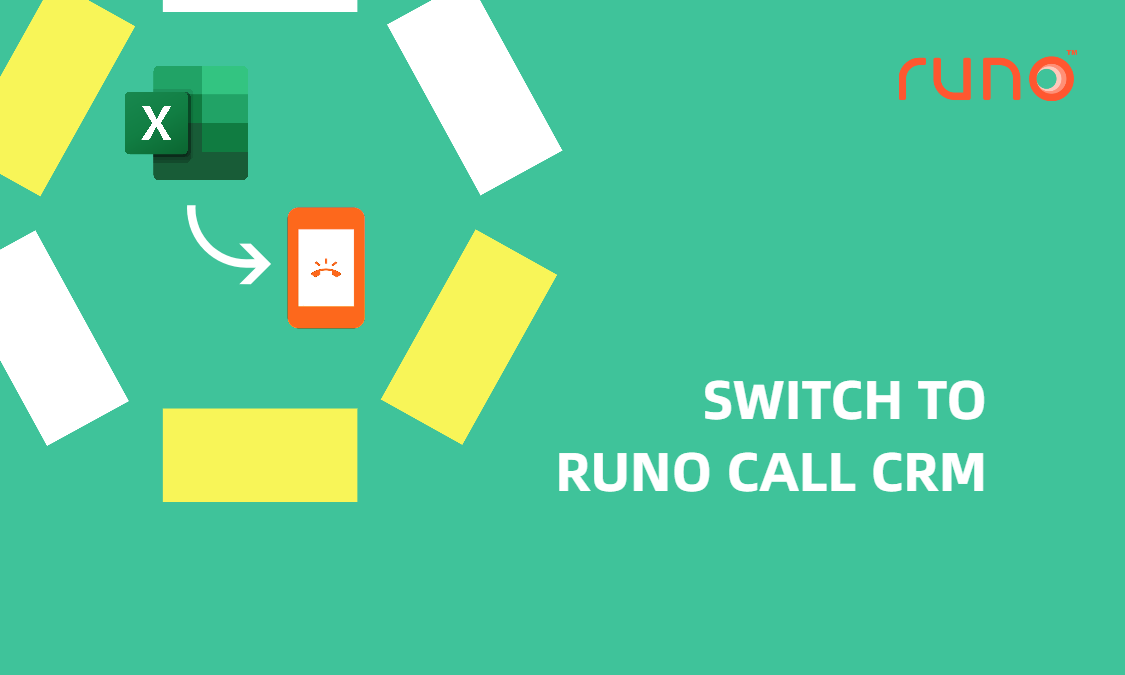Customer Relationship Management (CRM) is a collection of practices, methods, and technology that businesses employ to manage and analyze customer data and interactions throughout the customer lifecycle. The aim is to develop customer service relationships to help with client retention and sales growth.
CRM systems collect customer data from several points of interaction between the customer and the firm, such as the company’s website, live chat, phone, direct mail, social networks, and marketing materials. These systems also provide important information on customers’ details, purchase history, buying preferences, details, purchasing preferences, purchase history, and issues to customer-facing staff members.
CRM plays a crucial role in managing and analyzing customer data and interactions throughout the customer lifecycle. It involves a collection of practices, methods, and technology that businesses employ to develop strong customer relationships, enhance client retention, and drive sales growth.
In the realm of customer data management, many businesses have traditionally relied on spreadsheets. A CRM Spreadsheet is a popular and straightforward tool for organizing data, enabling companies to monitor customer information, track sales, and generate reports. You can find many free CRM Spreadsheet templates online to get started with Customer Relationship Management. However, as businesses grow and customer demands evolve, spreadsheets may not be the most efficient solution for effective CRM.
This blog explores the comparison between spreadsheets and CRM tools, delving into the benefits and limitations of each approach.
What is a CRM Spreadsheet?
A CRM spreadsheet refers to the use of spreadsheets as a means to organize and manage customer data and interactions. It involves creating a structured format within a spreadsheet application, such as Microsoft Excel or Google Sheets, to store and track customer-related information.
In a CRM spreadsheet, businesses typically create columns to capture details like customer names, contact information, purchase history, and any additional relevant data. Each row represents a separate customer entry, allowing for a tabular representation of customer records.

While spreadsheets offer a basic level of organization and data management, they lack the advanced features and capabilities of dedicated CRM software. Spreadsheets provide a simple and familiar interface for data entry and basic analysis, making them accessible to users with varying levels of technical expertise.
However, as businesses grow and customer data expands, managing CRM solely through spreadsheets can become challenging. Spreadsheets often lack automation and integration capabilities, making it difficult to scale customer management efforts effectively. Additionally, spreadsheets may not offer comprehensive reporting and analytics features, limiting insights into customer behavior and trends.
To overcome these limitations, businesses often turn to CRM software solutions specifically designed to handle customer relationship management tasks more efficiently. In the next sections, we will explore why businesses tend to stick with spreadsheets and the drawbacks associated with relying solely on spreadsheet-based CRM.
Why Do Businesses Stick to Spreadsheets for CRM?
Spreadsheets have long been a go-to choice for businesses when it comes to managing customer data and sales-related information. Several factors contribute to the continued reliance on spreadsheets for CRM purposes:
Simplicity and Familiarity
Spreadsheets are widely accessible and familiar to many users. Most professionals have basic knowledge of spreadsheet applications like Microsoft Excel or Google Sheets, making it easier to get started without extensive training or technical expertise.
Cost-effective Solution
Spreadsheets are often perceived as a cost-effective option for businesses, as they are typically included in productivity suites or available as standalone applications. This makes them an attractive choice, especially for smaller businesses or those operating on limited budgets.
Customizability
Spreadsheets offer a high level of customization, allowing businesses to design their own data structures and formulas. This flexibility enables organizations to adapt spreadsheets to their specific needs and workflows, tailoring them to suit their unique CRM requirements.
Basic Data Management
For businesses with relatively low customer volumes or simpler data management needs, spreadsheets can serve as a viable solution. They provide a basic level of organization and allow for manual data entry and simple sorting/filtering functions.
However, while spreadsheets offer some advantages, they also come with significant limitations that can hinder effective CRM.
Limitations of CRM Spreadsheets
While spreadsheets have their merits, they are not without their limitations when it comes to customer relationship management. Here are some of the key drawbacks associated with relying solely on spreadsheets for CRM
1. Lack of Centralized Data
Spreadsheets often require multiple sheets to accommodate different data types, resulting in scattered and fragmented information. This makes it challenging to maintain a centralized view of customer data, hindering the ability to gain a comprehensive understanding of customer interactions and preferences.
2. Limited Collaboration with CRM Spreadsheets
Spreadsheets are not designed for seamless collaboration among team members. Sharing spreadsheets often involves manual file transfers or version control challenges. This can lead to data inconsistencies and hinder real-time updates, especially in dynamic CRM environments where multiple users need simultaneous access to customer information.
3. Manual Data Entry
Maintaining accurate and up-to-date customer records in spreadsheets requires manual data entry, which is time-consuming and prone to human errors. It becomes increasingly challenging to manage large datasets and keep track of changes and updates, leading to potential inaccuracies and inefficiencies.
4. Inadequate Automation
Spreadsheets lack the automation capabilities offered by dedicated CRM software. Manual tasks, such as updating customer information, generating reports, or tracking customer interactions, can become cumbersome and repetitive, consuming valuable time and resources.
5. Limited Reporting and Analysis
Spreadsheets have limited capabilities when it comes to advanced reporting and analysis. Extracting insights from customer data becomes more challenging as the volume and complexity of data increase. Generating comprehensive reports and deriving meaningful analytics requires additional manual effort and may not be as efficient or accurate as with dedicated CRM software.
6. Scalability Issues
Spreadsheets may struggle to handle the growing demands of expanding businesses. As customer data increases, managing and organizing information within a spreadsheet becomes increasingly unwieldy. Without proper scalability, businesses may experience difficulties in effectively tracking customer interactions and providing personalized experiences.
The limitation of using a spreadsheet as a CRM outweigh the benefits. This is where businesses feel the need for dedicated CRM software solutions, which offer robust features and functionalities specifically tailored for efficient customer management.
How Is CRM Different From A Spreadsheet?
Spreadsheets are a popular and simple method of organizing data. They are used by many firms to monitor customer data and sales and generate reports. However, the issue is that spreadsheets have several flaws, including the requirement for various sheets to maintain different data types. Its inability to manage customer connections and the fact that all of our information is distributed among multiple devices and salespeople – these drawbacks are causing many firms to go with CRMs.
Businesses may use a CRM to keep their data in one place, monitor individual salespeople’s activities, and generate reports. Multiple users can be signed in simultaneously, editing and assigning contacts to each other, and the system can monitor everyone’s activity individually.
What is a CRM Tool?
A CRM tool, or Customer Relationship Management tool, is a specialized software designed to streamline and optimize customer management processes. Unlike spreadsheets, CRM tools offer comprehensive features and functionalities that enhance the efficiency and effectiveness of CRM efforts.

Why is CRM better than Excel?
a. Centralized Customer Database
CRM tools provide a centralized database to store and organize customer information. All relevant data, including contact details, communication history, purchase history, and preferences, can be stored in one location. This enables businesses to have a holistic view of each customer, facilitating personalized interactions and informed decision-making.
b. Advanced Contact Management
CRM tools offer robust contact management features, allowing businesses to track and manage customer interactions more effectively. They provide functionalities such as segmentation, tagging, and categorization, enabling businesses to target specific customer groups with tailored communication and marketing campaigns.
c. Automated Workflows
CRM software automates various manual tasks, reducing administrative burdens and saving time. Processes like data entry, lead assignment, follow-ups, and reminders can be automated, ensuring timely and consistent customer interactions. This automation enhances productivity, enabling teams to focus on high-value activities and fostering improved customer engagement.
d. Integration Capabilities
CRM tools often integrate with other business systems and applications, such as email clients, marketing automation tools, and customer support platforms. This integration ensures seamless data flow and enhances cross-functional collaboration, eliminating data silos and providing a comprehensive view of customer interactions across different touchpoints.
e. Reporting and Analytics
CRM software offers robust reporting and analytics capabilities, allowing businesses to derive valuable insights from customer data. Advanced reporting features provide real-time metrics, sales forecasts, and performance analytics, enabling data-driven decision-making and a better understanding of customer behavior and trends.
f. Helps planning ahead
CRM software is not just for capturing leads and managing them, they can also be used for task planning. To give an example in Runo CRM there’s a feature called timed notification. The user will get notifications according to the given date & time they have provided for following up. When you are handling a lot of customer data this helps users to manage, plan ahead and be on top of all the tasks.
g. Scalability and Customization
CRM tools are designed to scale with growing businesses. They can accommodate increasing customer volumes and evolving needs, providing flexibility and customization options. Customizable dashboards, fields, and workflows enable businesses to tailor the CRM tool to their specific requirements and workflows.
h. Enhanced Collaboration
CRM tools facilitate seamless collaboration among team members. Multiple users can access and update customer information in real time, ensuring consistent and accurate data. Tasks and activities can be assigned, tracked, and monitored, fostering teamwork and improving overall efficiency.
i. Mobile Accessibility
Many CRM software solutions offer mobile applications call as mobile CRM. Allowing users to access customer data and manage interactions on the go. This mobility enhances productivity, facilitates remote work scenarios, and enables timely customer engagement.
These are some of the benefits of using a CRM tool. These points itself is enough to prove that using a CRM tool is just better than using spreadsheets.
Conclusion
In conclusion, CRM software offers a range of benefits that surpass the limitations of spreadsheets for customer management. It provides a centralized and structured approach to managing customer data, streamlines processes through automation and enables advanced reporting and analytics. CRM software enhances collaboration, facilitates personalized customer engagement, and supports scalability and adaptability for business growth. By transitioning to CRM software, businesses can unlock new opportunities for efficiency, data-driven decision-making, and stronger customer relationships.
What Is Runo SIM-Based Call Management CRM?
Runo is a Telecalling app that also provides an in-built ready-to-use CRM tool that is both economical and powerful. It is designed with a new perspective to handle telecalling and outbound sales procedures.
How Runo CRM Solves the Problems Faced with Spreadsheets
- The first and foremost problem faced with a spreadsheet is visualizing data. To see the data properly, we need a computer or laptop, but with Runo, one only needs a mobile phone that’s it.
- Businesses not only get easy to use & flexible CRM software, but they also get a telecalling app that can take care of businesses’ outbound calling.
- Runo also provides top features of a telecalling app like business call tracking and analytics, call management solutions, integration with external CRM, and inbuilt CRM integrated with Whatsapp and email, which is not available on normal spreadsheet CRM.
- Spreadsheets CRMs are often unsafe for personal data, but we at Runo provide high data security services on our mobile application, ensuring that confidential information is safe.
- Runo CRM also saves a lot of our time because it offers a fully automated app, which is not the case with a spreadsheet.
Try out the Runo Call Management app with CRM & Auto Dialer for Free
Frequently Asked Questions
Where is CRM data stored?
CRM data is typically stored in a centralized database within the CRM software. This database can be hosted either on-premises or in the cloud, depending on the deployment model chosen by the business. Cloud-based CRM solutions have gained popularity due to their accessibility, scalability, and ease of maintenance. They store the CRM data securely in the cloud, allowing authorized users to access and update the information from anywhere with an internet connection.
